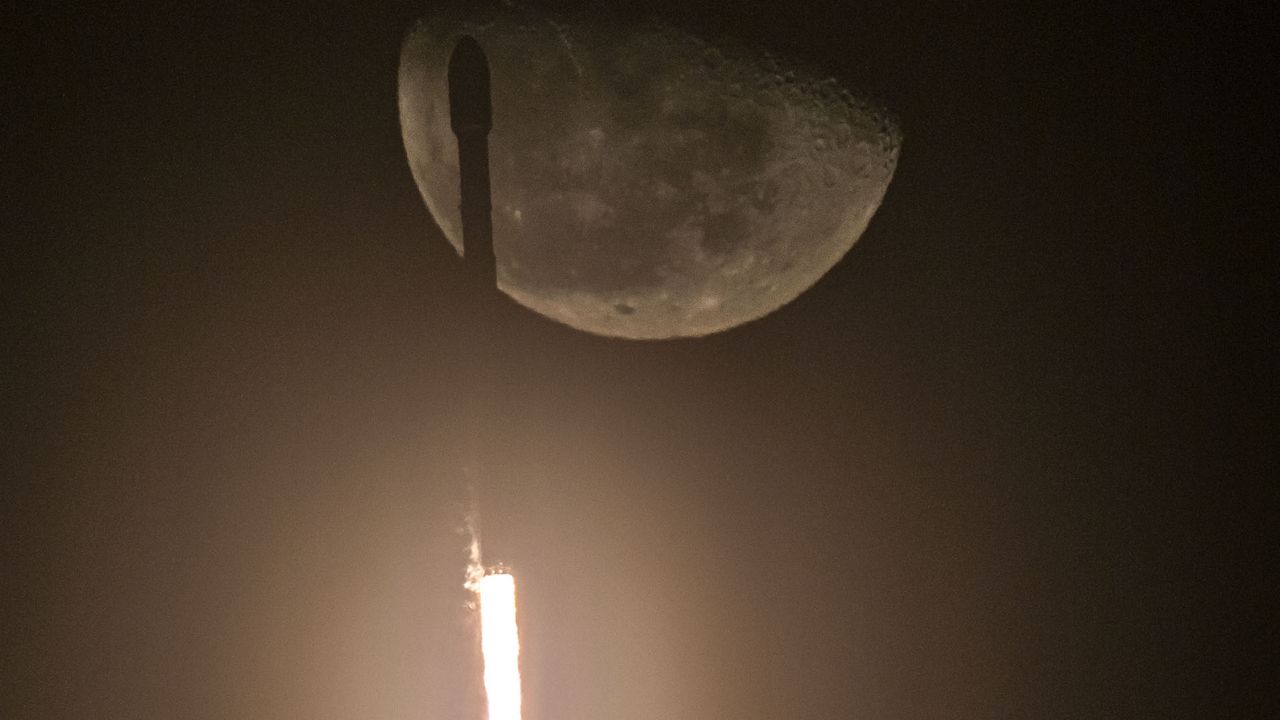CAPE CANAVERAL SPACE FORCE STATION — Despite weather experts warning of excessive liftoff winds, SpaceX was able to launch another batch of Starlink satellites early Sunday morning.
What You Need To Know
- A SpaceX Falcon 9 rocket carrying 55 Starlink satellites launched early Sunday morning
- Falcon 9 rocket carried the Starlink satellites to low-Earth orbit
- 🔻Scroll down to watch the launch🔻
Liftoff! pic.twitter.com/xDVx2vFFqD
— SpaceX (@SpaceX) February 12, 2023
SpaceX's Falcon 9 rocket lifted off at around 12:10 a.m. EST, Sunday, from Space Launch Complex 40 at Cape Canaveral Space Force Station and sent 55 Starlink satellites into a low-Earth orbit.
Originally scheduled for 11:42 p.m. EST, Saturday, the mission was moved just under half-an-hour later to 12:10 a.m. EST, Sunday from Space Launch Complex 40 at Cape Canaveral Space Force Station.
Targeting Sunday, February 12 at 12:10 a.m. ET for Falcon 9’s launch of 55 Starlink satellites; team is keeping an eye on weather which is 20% favorable for liftoff → https://t.co/bJFjLCilmc pic.twitter.com/Ai27FlsDTs
— SpaceX (@SpaceX) February 10, 2023
SpaceX did not give a specific reason for delaying the launch, but Spectrum News meteorologist Chris Gilson said on Friday that winds were going to be an issue on Saturday because a cold front will move through Central Florida.
“These winds will likely be strong at the surface, but even stronger higher in the atmosphere with the low nearby," he said. "It is both the winds at the surface and the winds higher up in the sky that can prevent a launch from happening if they are too strong."
On Friday, the 45th Weather Squadron gave a 20% chance of good launch weather for the original Saturday night liftoff and warned about winds. For the Sunday morning launch, it gave a 60% chance of good launch weather, but the primary concern was still liftoff winds.
Falcon 9 launches 55 Starlink satellites to orbit pic.twitter.com/kASyhCqrko
— SpaceX (@SpaceX) February 12, 2023
However, in SpaceX’s earlier tweet, the company stated that Sunday had a 20% of favorable liftoff weather.
SpaceX had given additional launch dates and times for the Starlink 5-4 mission if Sunday’s launch cannot go up on time.
The Falcon 9’s first-stage booster B1062 has had 11 successful missions.
- GPS III SV04 Sacagawea
- GPS III SV05 Neil Armstrong
- Inspiration4
- Axiom 1
- Nilesat-301
- 6 Starlink missions
After the first-stage booster launched the 55 Starlink satellites to low-Earth orbit, it separated from the craft and landed on the droneship A Shortfall of Gravitas stationed in the Atlantic Ocean.
Falcon 9’s first stage has landed on the A Shortfall of Gravitas droneship – completing this booster’s 12th flight pic.twitter.com/nPCkH5NND5
— SpaceX (@SpaceX) February 12, 2023
About the mission
According to the company, which is operated by SpaceX, the Starlink satellites provide internet access to most parts of the world.
Before Sunday morning’s launch, astronomer Jonathan McDowell of the Harvard-Smithsonian Center for Astrophysics recorded the following information on the current Starlink satellites: 3,580 are in orbit, with 3,536 in working order and 3,168 actively operating.



